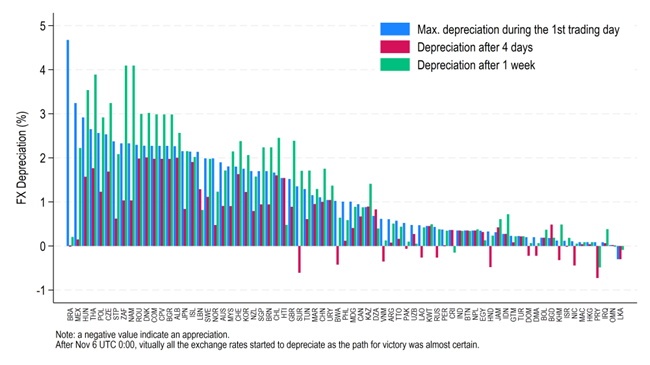CNN
—
The reaction from Democrats to Donald Trump’s 2024 victory is, to put it mildly, very much unlike their reaction to his 2016 win. Instead of mass protests in the streets, Democrats have been, for the most part, quiet.
Indeed, the aftermath of the 2024 election almost looks like it is from a bygone era. This is the first presidential election in at least a decade when pretty much everyone on the losing side has reached the fifth stage of grief: acceptance.
Take a look at recent polling from Reuters/Ipsos. When asked whether Trump’s win was legitimate, about 94% of voters said it was. This includes 64% who agreed that Trump’s win was legitimate and supported his presidency and another 30% who accepted Trump’s victory but indicated that they would oppose his presidency.
Only about 6% of registered voters said they did not accept the results as legitimate.
Democrats feel basically the same way. About 90% said the results were legitimate, while very few (about 10%) said they were not.
Compare that to where we were four years ago in the aftermath of the 2020 campaign. A Quinnipiac University poll found that 60% of voters said Biden’s win was legitimate while 34% said it wasn’t. Among Republicans, over two-thirds (70%) argued Biden’s victory was illegitimate.
That high percentage of Republicans who thought Biden’s win was illegitimate has pretty much held firm since. Trump, of course, flamed those beliefs by never conceding to Biden and consistently arguing the election was rigged. Trump’s claims were, of course, unfounded.
This year, unlike four years ago, the losing candidate, Vice President Kamala Harris, did concede, and the losing side, Biden, welcomed the winning side to the White House.
But what makes what’s happening this year so interesting isn’t just the comparison to 2020 – it’s also the comparison to 2016, when a different Democrat lost to Trump
Back then, Hillary Clinton did concede defeat. President Barack Obama did welcome Trump to the White House.
Yet despite these cues from the top, some Democrats dug in. There was a movement to stop the electors of the Electoral College from voting for Trump. A few Democrats objected to Trump’s certification at Congress – though far fewer than the GOP members of Congress who did the same with Biden four years later.
More notably, there were mass protests in the streets.
This showed in the polling. A third of Clinton supporters in a mid-November 2016 ABC News/Washington Post poll said that Trump’s win was not legitimate. Overall, 18% of adults said Trump’s win wasn’t legitimate, three times as large as the figures for the 2024 election
By April 2017, the percentage of adults who viewed Trump as an illegitimate president rose to 32% in Gallup polling. The percentage of Democrats who felt that way became a majority (56%).
The 2016 election wasn’t the first time Democrats thought a GOP president didn’t legitimately win. After George W. Bush’s razor tight win in 2000 and close victory in 2004, 76% and 25% of Democrats respectively said his victories in those elections were not legitimate in CBS News polling. Over 40% of all Americans agreed that his 2000 win was illegitimate, while a much lower 14% said so about 2004. A number of Democrats in Congress objected to the official certification of both wins.
The response from Democrats in 2024 feels a lot more like something you might have seen from Republicans in 2008 or 2012.
In both those years, no pollster that I could find even asked about whether Obama’s wins were legitimate. It was just taken as a foregone conclusion that most people would say it was.
No congressional Republicans objected to certifying Obama’s win in either 2009 or 2013. Obama’s two wins were the only two times in the 2000s that no one on either side of the aisle objected to a president’s win in Congress.
This isn’t to say there weren’t efforts to delegitimize Obama’s presidency from some Republicans. A number, including Trump, falsely claimed that he was not a natural born citizen and therefore was ineligible to be president.
Yet the percentage of Americans and Republicans who believed Obama was born in another country tended to be quite small.
The question going forward is whether this era of acceptance continues. Recent history suggests that it probably won’t. Democrats may have accepted Trump’s win, but he’s likely to upset them greatly during his presidency.
Then again, we don’t know how Trump’s second term will actually go down. We’re already dealing with a pattern breaking in that Trump is the first president to win non-consecutive terms since the 19th century. Maybe something unusual will happen again.













